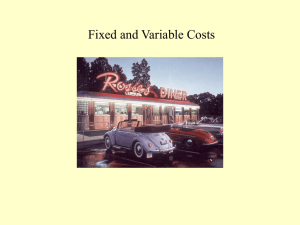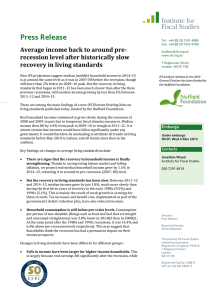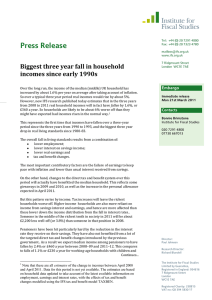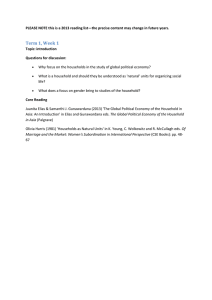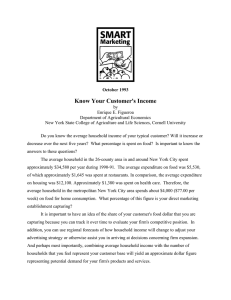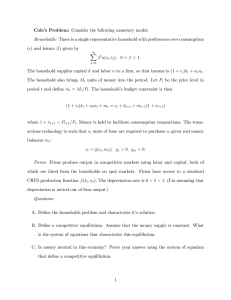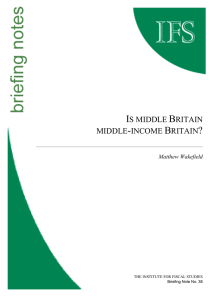Press Release Households with children to lose most
advertisement
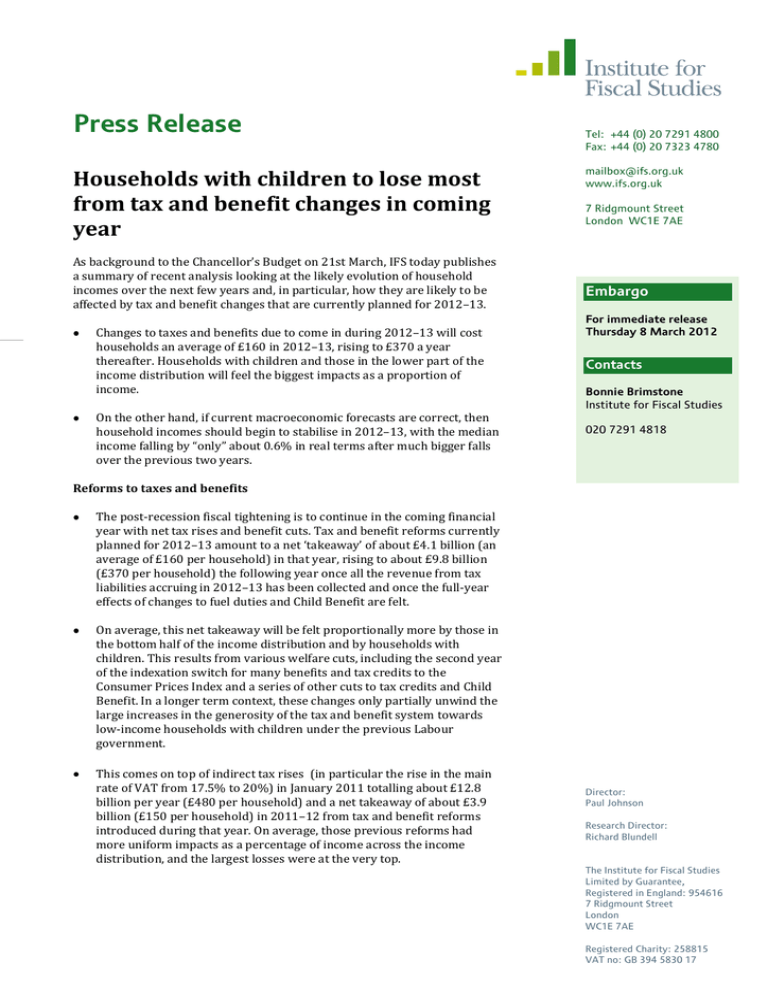
Press Release Households with children to lose most from tax and benefit changes in coming year As background to the Chancellor’s Budget on 21st March, IFS today publishes a summary of recent analysis looking at the likely evolution of household incomes over the next few years and, in particular, how they are likely to be affected by tax and benefit changes that are currently planned for 2012–13. Changes to taxes and benefits due to come in during 2012–13 will cost households an average of £160 in 2012–13, rising to £370 a year thereafter. Households with children and those in the lower part of the income distribution will feel the biggest impacts as a proportion of income. On the other hand, if current macroeconomic forecasts are correct, then household incomes should begin to stabilise in 2012–13, with the median income falling by “only” about 0.6% in real terms after much bigger falls over the previous two years. Tel: +44 (0) 20 7291 4800 Fax: +44 (0) 20 7323 4780 mailbox@ifs.org.uk www.ifs.org.uk 7 Ridgmount Street London WC1E 7AE Embargo For immediate release Thursday 8 March 2012 Contacts Bonnie Brimstone Institute for Fiscal Studies 020 7291 4818 Reforms to taxes and benefits The post-recession fiscal tightening is to continue in the coming financial year with net tax rises and benefit cuts. Tax and benefit reforms currently planned for 2012–13 amount to a net ‘takeaway’ of about £4.1 billion (an average of £160 per household) in that year, rising to about £9.8 billion (£370 per household) the following year once all the revenue from tax liabilities accruing in 2012–13 has been collected and once the full-year effects of changes to fuel duties and Child Benefit are felt. On average, this net takeaway will be felt proportionally more by those in the bottom half of the income distribution and by households with children. This results from various welfare cuts, including the second year of the indexation switch for many benefits and tax credits to the Consumer Prices Index and a series of other cuts to tax credits and Child Benefit. In a longer term context, these changes only partially unwind the large increases in the generosity of the tax and benefit system towards low-income households with children under the previous Labour government. This comes on top of indirect tax rises (in particular the rise in the main rate of VAT from 17.5% to 20%) in January 2011 totalling about £12.8 billion per year (£480 per household) and a net takeaway of about £3.9 billion (£150 per household) in 2011–12 from tax and benefit reforms introduced during that year. On average, those previous reforms had more uniform impacts as a percentage of income across the income distribution, and the largest losses were at the very top. Director: Paul Johnson Research Director: Richard Blundell The Institute for Fiscal Studies Limited by Guarantee, Registered in England: 954616 7 Ridgmount Street London WC1E 7AE Registered Charity: 258815 VAT no: GB 394 5830 17 The outlook for household incomes Of course, tax and benefit policy is not the only important factor affecting changes in household incomes. For those higher up the income distribution, the failure of earnings growth to keep pace with inflation has been the dominant factor of late. As a result, median household income – the household income of the person richer than half of the population and poorer than the other half – has fallen by an estimated 6.4% in real terms over the last two financial years. More happily, if current macroeconomic forecasts are correct, then the gap between inflation and earnings growth will close and most of the real-terms fall in median income has now occurred. Real median income is projected to fall by 0.6% in 2012–13, to stay roughly flat in 2013–14, and finally to return to positive growth from 2014–15. Nevertheless, real growth in median income is still projected to be below its historical average rate in 2015–16, leaving median income lower in real terms in that year than it was in 2002–03. Had real median income instead continued to grow at its historical average annual rate of 1.6%, it would have increased by 22% over those 13 years. A continuing difficulty facing the government is the disjuncture between its stated child poverty targets and the fact that there is no realistic chance of meeting them under current policies. Given this, there seem to be two constructive ways forward: the government could reveal a credible plan for meeting the targets that it has signed up to; or it could set different targets which reflect its view of what is both desirable and achievable, and set out how it plans to meet those. Robert Joyce, a research economist at the IFS and the author of the report, said “As the Chancellor weighs up possible new announcements for his Budget in a fortnight’s time, a key consideration will doubtless be the outlook for household incomes and how they are likely to be affected by the tax and benefit changes that have already been announced for the coming financial year. After sharp real-terms falls in average household income over the last two years, it will not fall much further if current macroeconomic forecasts are correct. Nevertheless, even once average income starts to bounce back, its recovery is expected to be sluggish for some time. New tax and benefit measures to be introduced in the coming year as part of the Government’s deficit reduction efforts will, unsurprisingly, reduce household incomes on average. The major demographic group who will lose the most from this set of reforms is households with children.” ENDS Notes to Editors: 1. The Briefing note ‘Tax and benefit reforms due in 2012-13, and the outlook for household incomes’ is available on the IFS website: http://www.ifs.org.uk/publications/6041 The Institute for Fiscal Studies Limited by Guarantee, Registered in England: 954616 7 Ridgmount Street London WC1E 7AE
